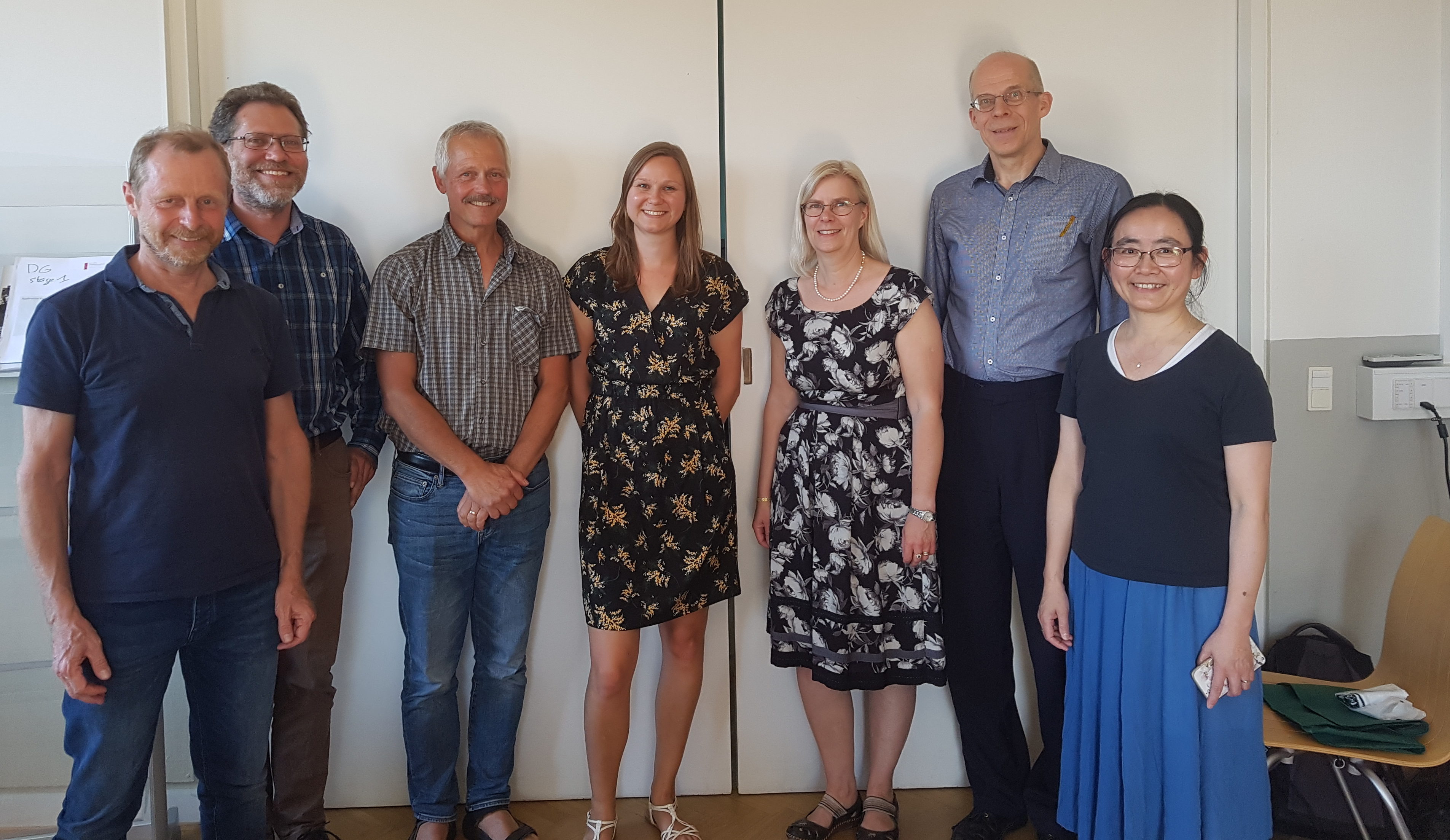The 29th of June ice2ice PhD Ida Magrethe Ringgaard succesfully defendend her PhD on “Sensitivity of Arctic sea ice change on climate in the coupled climate model EC-Earth”.

In the PhD she investigated the sensitivity of the climate to changes in the Arctic sea ice using an atmosphere-ocean coupled climate model. Ida has found that Barents-Kara sea ice loss might be linked to a weak cooling over parts of Europe in winter only present for the temporal mean winter temperatures. However the coldest winters did not show a statistically significant cooling over Europe for any amount of sea ice loss in the Barents-Kara Seas.
She also used the warm RCP8.5 scenario to look at sea ice loss in the period 1850-3200 and found that the Arctic transitioned from having a perennial sea ice cover to an ice-free Arctic Ocean. The loss of the Arctic sea ice appeared to lead to a shift in trends for some key parameters such as the precipitation variability which increased and the Atlantic Meriodional Ocean Circulation which stabilized after an initial reduction as well as a change in the Arctic Ocean stratification which strengthened.
Ida was supervised by:
- Professor Eigil Kaas, Physics of Ice, Climate and Earth, Niels Bohr Institute, University of Copenhagen
- Professor Jens Hesselbjerg Christensen, Physics of Ice, Climate and Earth, Niels Bohr Institute, University of Copenhagen
and in the assesment committee was:
- Associate Professor Anders Svensson, Physics of Ice, Climate and Earth, Niels Bohr Institute, University of Copenhagen
- Professor Gunilla Svensson, Meteorologiska Institutionen, Stockholm University
- Professor Timo Vihma, Finnish Meteorological Institute